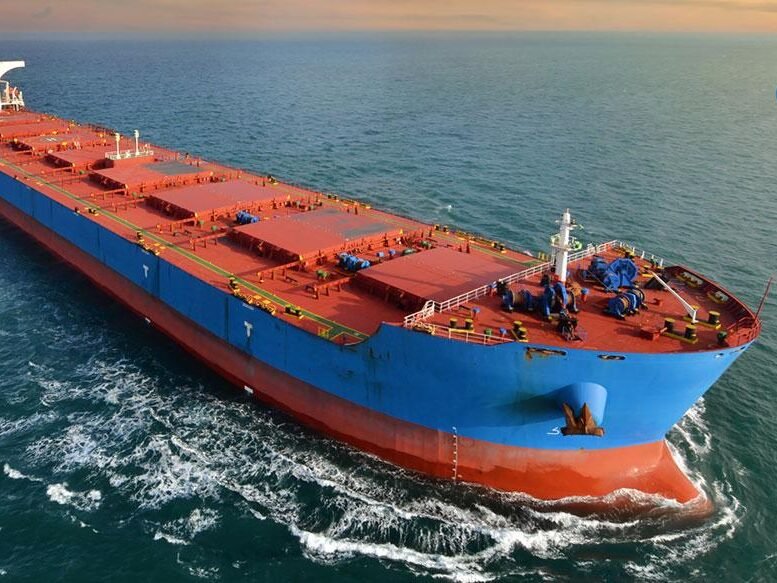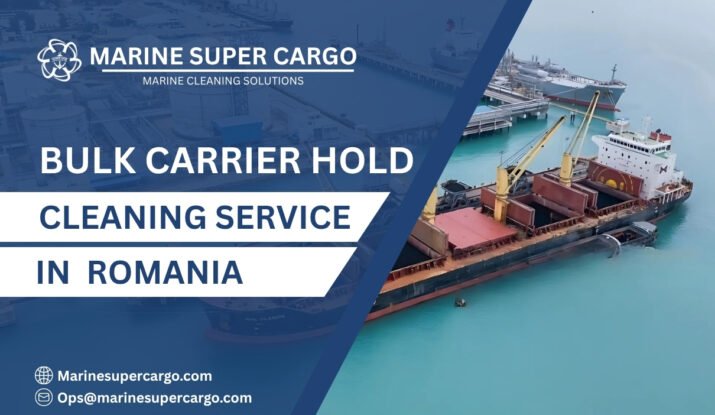Hold cleaning is a critical operational requirement in bulk shipping. For any cargo vessel operating in the Black Sea region or docking at ports like Constanța, Galați, or Brăila, a professional Hold Cleaning Service in Romania is essential to meet international regulatory requirements and ensure cargo safety.
A comprehensive Hold Cleaning Service in Romania provides shipowners and operators with the confidence that their vessel’s cargo holds are free of contaminants, residues, or moisture that can compromise cargo integrity.
This service becomes especially crucial when switching between different types of bulk cargo such as coal, grains, fertilizer, cement, or steel. Each of these materials may leave behind residues that require tailored cleaning techniques.
Whether calling at the major Port of Constanța or other inland navigable ports like Galați, reliable Hold Cleaning Service in Romania ensures operational readiness for the next cargo cycle.
Importance of Hold Cleaning in Romanian Shipping Operations
Romania, with its vast coastline along the Black Sea and well-developed maritime infrastructure, is a key logistics point for vessels in Eastern Europe. The strategic importance of Romanian ports for grain exports and industrial imports necessitates high standards of vessel preparation.
A properly executed Hold Cleaning Service in Romania aligns with global standards set by the International Maritime Organization (IMO) and pollution control frameworks like MARPOL Annex V.
Failure to clean cargo holds to the required standard can lead to:
- Rejection of cargo by surveyors or receivers
- Financial penalties and demurrage
- Delay in cargo operations
- Legal non-compliance
- Residual chemical contamination

Stages of Professional Hold Cleaning Service in Romania
1. Dry Cleaning
This step removes bulk residues using brooms, scrapers, or pneumatic tools. It’s the most effective method for dry cargo like grains, fertilizers, or sugar.
2. High-Pressure Washing
Sea or freshwater is sprayed using high-pressure hoses to remove dust, remaining particles, or salt residues. Ports like Brăila and Galați have freshwater availability that aids in rinsing.
3. Chemical Treatment
Eco-friendly degreasers or alkaline cleaning agents are applied to dissolve oil-based stains, coal dust, or residues left by previous cargo.
4. Drying
After washing, holds are air-dried or blow-dried using ventilators to prevent mold or rust development.
5. Inspection and Certification
Surveyors conduct a final inspection. The cargo hold must meet the “grain clean” or “hospital clean” standards before it can be reloaded.
Benefits of Hold Cleaning Service in Romania
- Regulatory Compliance
Aligning with IMO and MARPOL environmental guidelines is a legal requirement, particularly for vessels transiting European ports. - Cargo Safety
Contaminants can spoil food-grade cargo or react with industrial materials. A clean hold prevents cargo deterioration. - Operational Efficiency
Reduced delays during port inspections lead to quicker cargo operations. - Environmental Responsibility
Romanian environmental agencies monitor port operations strictly. Eco-compliant services reduce the risk of oil or chemical discharges.
Common Challenges in Hold Cleaning in Romania
- Weather Delays
Winter months in the Black Sea region can impact outdoor hold cleaning, especially if drying time is extended. - Water Source Constraints
Using potable or freshwater in inland ports like Galați can be limited; seawater is used when possible, followed by freshwater rinsing. - Residue Complexity
Some materials such as coal and cement require chemical neutralization before washing. - Port Regulations
Strict environmental rules in Romanian ports require careful disposal of waste, requiring services to comply fully.
Types of Vessels Served by Hold Cleaning Services in Romania
- Bulk Carriers
- General Cargo Vessels
- Reefer Ships
- Container Vessels (if carrying bulk in containers)
- Heavy Lift Vessels
Port Accessibility for Hold Cleaning Service in Romania
Hold cleaning services are available across Romania’s major ports including:
Services are often coordinated to ensure minimal disruption to scheduled cargo operations.
IMO and MARPOL Compliance in Romanian Waters
The IMO and MARPOL protocols guide all cleaning, waste disposal, and pollution control efforts. Vessels undergoing Hold Cleaning Service in Romania must meet:
- MARPOL Annex V: Controls disposal of dry cargo residues into the sea.
- IMO Cargo Residue Guidelines: Standards for washing, discharge, and reporting.
- Local Romanian Port Authority Regulations: Each port has its own environmental rules.
Documentation provided post-cleaning includes:
- Cleaning logs
- Photographic evidence
- Waste management reports
- Inspection certificates
Frequently Asked Questions (FAQs)
Q1: What is the best time to schedule Hold Cleaning Service in Romania?
The ideal time is immediately after cargo discharge, especially when switching between incompatible cargoes. Morning hours in dry weather ensure faster drying and inspection.
Q2: Can I get certification after hold cleaning in Romania?
Yes, after final inspection, certification is provided to show compliance with IMO and MARPOL requirements.
Q3: Is chemical cleaning mandatory?
It depends on the type of cargo previously carried. Chemical treatment is essential for oil, cement, or sticky residue removal.
Q4: Can hold cleaning be done at anchorage in Romanian ports?
Limited services are available at anchorage. It’s generally recommended to perform cleaning at the berth for access to water, equipment, and inspection teams.
Q5: What are the environmental standards followed?
Hold cleaning in Romania adheres to MARPOL Annex V, IMO guidelines, and local Romanian environmental protocols. Waste disposal is strictly regulated.
Contact Details for Hold Cleaning Service in Romania
For coordinated, efficient, and certified hold cleaning services in Romanian ports, you can contact:
- Email: ops@marinesupercargo.com
- Website: marinesupercargo.com
- Phone: +91 7080050720


